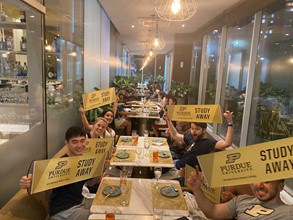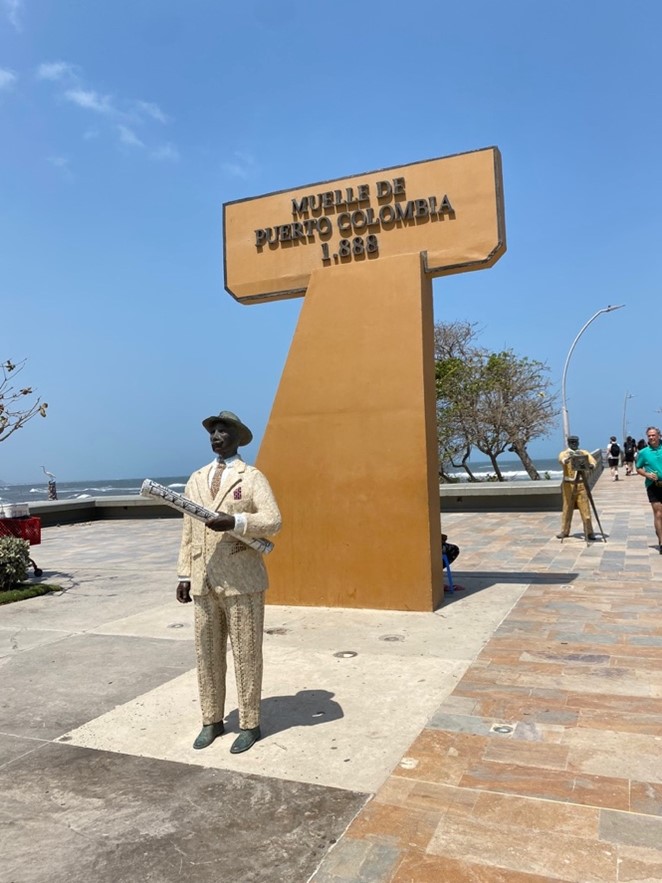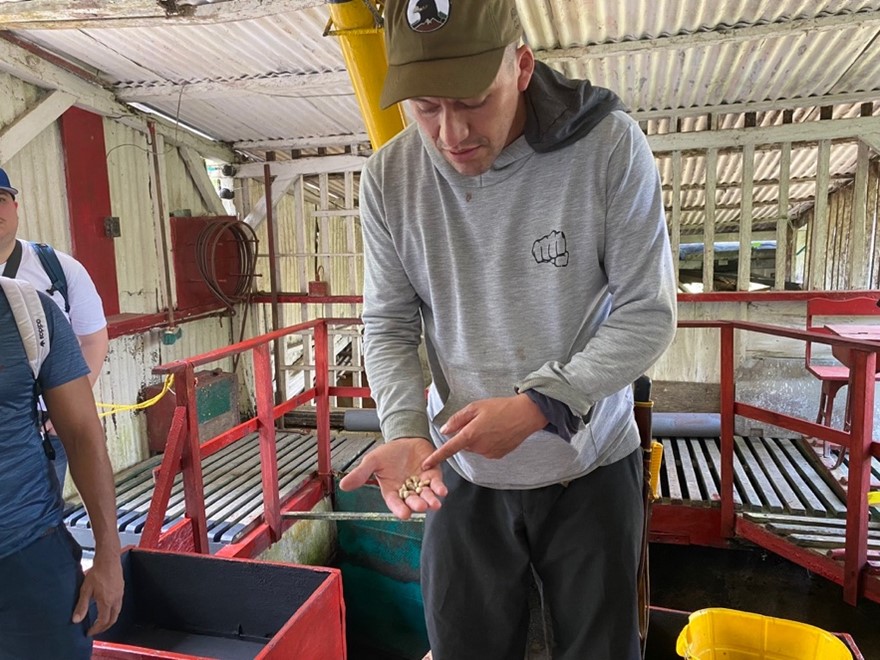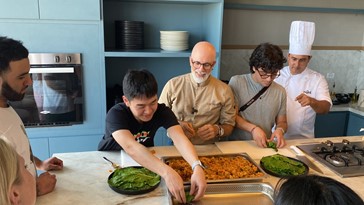Food Sustainability and Culture in Colombia, Spring Break 2024

Source: Natasha Duncan, PhD
By Natasha Duncan, PhD, Associate Dean for Academic and International Affairs
On March 9, 2024, 19 students departed West Lafayette on a transformative, one-week study-away trip to Colombia. The group comprised a diverse mix of majors, ranging from history to chemical engineering and psychology. Their travel experiences varied significantly: some had never left the United States, while others were seasoned travelers with journeys to places like Haiti and the Dominican Republic. Their diversity was the source of the richness of the group and fed into the main learning objectives of the course. Despite their varied backgrounds, the students shared a common thread—unfamiliarity with Colombia and a keen desire to challenge the media-fueled stereotypes associated with the country.

Source: Natasha Duncan, PhD
Food Sustainability and Culture in Colombia was an experiential learning course that challenged students to think critically in two key areas: food in the Colombian context and food sustainability in a multi-disciplinary context. By engaging thoughtfully in these two areas, students compared cultural norms between the US and Colombia. Additionally, they applied their different disciplinary perspectives to analyze approaches to sustainability of food systems within both the Colombian and West Lafayette local context.
The students’ exploration took place in Barranquilla, located in the Atlántico department in the north of Colombia. In Barranquilla, the confluence of cultures from the different migratory waves, forced and voluntary, is palpable. Strands of African, Middle Eastern (Lebanese) cultural foods are interwoven with indigenous and European flavors, festivals, and practices. Through sites visited, presentations, and the preparation and tasting of traditional foods, students examined if and how these food systems endure generation to generation in the face of technological advances, international influences, and public policy choices.

Source: Natasha Duncan, PhD
Food sustainability is vibrant in Colombia, manifesting in different forms. At La Victoria, a coffee farm in Santa Marta, the skins of the coffee cherry and worm excrement are used to make fertilizer. At La Parisienne, the founders’ children continue their parents’ traditions of meat curing at a plant that started as a small butcher shop several decades ago. Sabor Barranquilla’s aims to promote local foods indigenous to the area, preserving culture through inter-generational activities. In La Piangua on the Pacific coast, clam harvesting presents sustainability challenges related to over-harvesting, impacting the communities reliant on this industry. In Antioquia, an initiative is underway to preserve traditional dishes and food practices by creating a market for local cuisines through tourism. According to Professor Beatriz, tourists can aid in the endurance of food or cultural heritage through documenting foods via photos, adopting dishes encountered and purchasing local foods when traveling.

Source: Natasha Duncan, PhD
Our time in Colombia was not solely focused on serious discussions about food sustainability; it was also filled with the joy of hands-on cultural experiences. We danced to the lively rhythms of champeta and mapalé. We made pastel de arroz with Chef Alex Quessep and arepas with Chef KC Schmitz. We savored the unique flavors of viche and fritos prepared by a matrona.
Although the class lasted one week, it was filled with rich experiences that will transform how we think about food sustainability in both the Colombian context and in West Lafayette. We thank our partner, UniNorte, for curating such an enriching experience. The trip was hosted by the Latino Cultural Center and the John Martinson Honors College.




